Dr Keshab Panda: 'Demand for ADAS, EVs, autonomous vehicles and security systems design is at all-time high.'
How L&T Technology Services is looking to accelerate its expertise, from smart manufacturing to Lidar to partnering global OEMs and Tier 1 companies, and acquiring cutting-edge tech firms too
A 'glocal' strategy acts as a good insulator to a slowdown. That's just what L&T Technology Services is benefiting from as it revs up its portfolio. CEO and Managing Director, Dr Keshab Panda explains how the firm is looking to accelerate its expertise, from smart manufacturing to Lidar to partnering global OEMs and Tier 1 companies and acquiring cutting-edge tech firms too.
How has L&T Technology Services (LTTS) fared in CY2019 and the first two quarters of FY2020?
L&T Technology Services has sustained the growth momentum as India’s leading ER&D services provider in the first half of FY2020. Rising demand for advanced digital engineering solutions by a global clientele and a healthy large-deals pipeline have ensured that overall the sentiments about CY2019 remain upbeat.
On a comparative scale, the industry indeed is facing challenges amid continuing uncertainty over global trade negotiations, as reflected in the first two quarters. But from a company standpoint, plant engineering, transportation and medical devices registered healthy growth in H1. We are confident about our capabilities and competitive position, which are reflected in the large deals that we won in the first two quarters. This makes us remain upbeat about closing another year with double-digit growth.
Has the slowdown in the global and domestic automotive industry impacted your business?
Since LTTS’ operations are spread across 30 countries and five continents, our business model is well diversified in terms of the geo-mix as well as offerings to different industry segments. This global presence is what insulates LTTS from a potential slowdown in any one industry sub-segment.
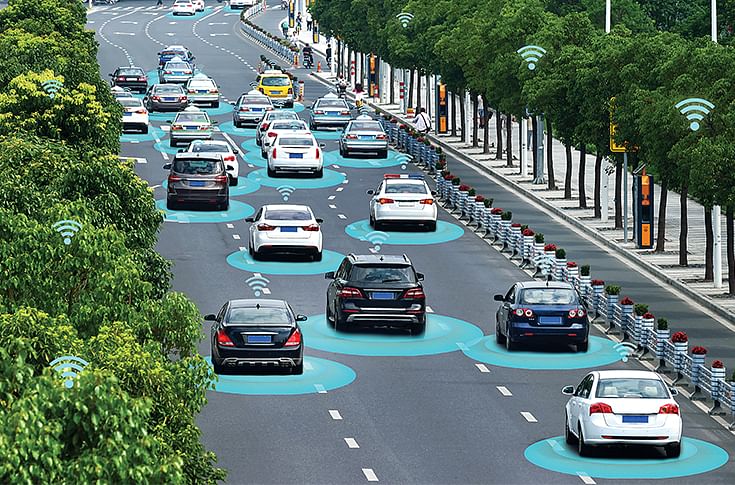
Based on our discussions with clients across the globe, we have also observed the increasing demand for digital connectivity, which has impacted technology to meet a new set of unique passenger experiences. Both domestically and globally, demand for new-age concepts such as autonomous vehicles, ADAS, EVs, infotainment systems and security systems design, to name a few, is at an all-time high. In auto and trucks, we continue to see a good pipeline in areas like functional safety, electrification, autonomous, IoT and telematics. All these factors have ensured that there is a steady long-term business momentum flowing in from the transportation vertical.
What are the new trends in terms of demand and challenges from domestic and global OEMs?
It is true that evolving consumer preferences for experiences-on-the-move have led to certain disruptions in traditional business models. The auto industry is currently in a state of flux, as it aligns to the contemporary digital era. At LTTS, we believe, that this transition will be beneficial for all segments of the industry in the long-term.
Companies such as LTTS and also many others have geared up for this evident upward trend for new-age digital engineering services from the transportation vertical, which include demand arising out of concepts such as autonomous, electrification and ridesharing vehicles, ADAS, EVs, and infotainment systems. These in-demand technologies include AI, machine learning, cloud and data analytics, among others. Global and domestic OEMs are now reimagining and reinventing vehicle manufacturing for a safer and more intuitive driving system.
What trends do you foresee in India's component industry?
We believe the recent developments reflect that the Indian industry is vying to keep pace with the latest developments in the global technological landscape. Electric vehicles (EVs) have assumed a key consideration in the domestic market, given the go-green push by the government and one may witness the next level of evolution of the same in the country, especially in the commercial vehicle segment. The challenge now is to bring all aspects of the ecosystem together so that all players can work as a whole and avoid any untoward disruptions.
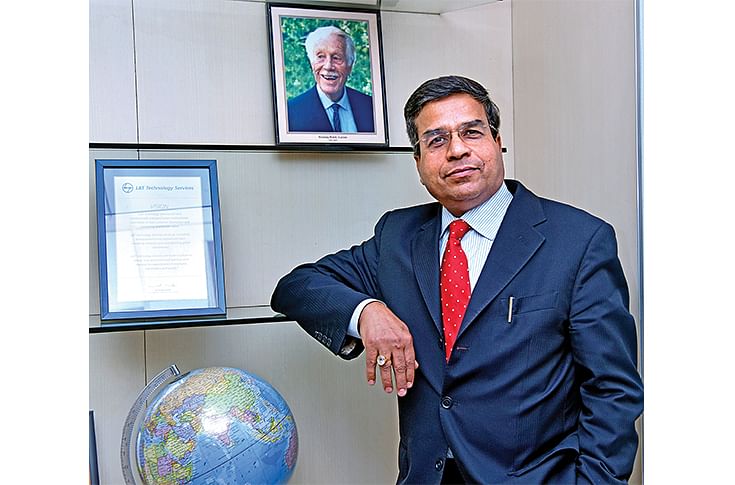
One of the new global megatrends is of car sharing/ride-hailing. How do you view it?
The advent of ride-hailing services has been a game-changer for the sector. It has taken global markets by storm and is picking up steam in India as well.
There will surely be a newer opportunity around the ride-hailing industry in the years to come. We believe at the end of the day, it’s all about changing the face of urban transportation. It’s not just ride-sharing, but there are other important components that make up the transportation ecosystem, such as hybrid vehicles, upgraded
public-private transport including buses, metros, electric bikes and scooters.
With its leadership in Internet of Things (IoT) services and track record of implementing complex engineering projects, LTTS is well poised to capitalise on this trend as and when the opportunity presents itself.
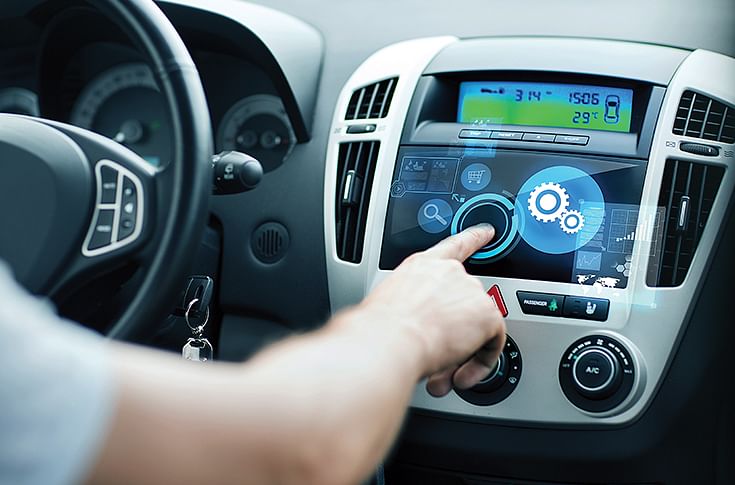
LTTS has invested in cloud-based technologies and software tools for sensing and connectivity. It sees huge potential in next-gen vehicles where personalised experience will be at the forefront.
LTTS and other major players are working to incubate green technologies that can power these EVs and address the congestion and pollution faced by many of our cities today.
The Indian automotive market has proven to be a tough nut for many OEMs to crack. Some like GM, MAN Trucks and Scania (for bus body manufacturing operations) have exited and UM Motorcycles has suspended operations. Meanwhile, Kia, PSA and MG Motors have entered the market. How do you assess this situation?
From an engineering services standpoint, I view this more as an opportunity. This segment is in a flux and many OEMs are looking for partners with domain knowledge for the future roadmap. Despite certain headwinds, India continues to be among the top markets for the automobile industry and this trend is set to sustain for years to come. This is also demonstrated by the number of captive centres set up by global OEMs and Tier 1 companies across the country.
The movement of OEMs to and from India is part of the ongoing business cycle. India is a special and also a cost-sensitive market, so it is natural many of the foreign manufacturers need to adopt to the conditions here.
With its deep engineering heritage and domain expertise in India, LTTS can support many of the global OEMs to localise operations for the subcontinent. Our strategy of ‘Glocal’ (global + local model) has worked well for us and contributed to five successive years of growth.
Who are your new automotive clients?
LTTS is working with the top global names in the industry for important domestic programs. The projects we have undertaken for customers in India include smart manufacturing to improve efficiencies and production, new-age technologies, to enhance the passenger experience, and providing smart services to optimise the overall supply chain. LTTS has also done reverse-engineering by breaking-down vehicles into components for further study and analysis, in its tear-down vehicle lab in Vadodara.
While we cannot name our new clients at this stage due to NDA obligations, our clients include Fortune 500 companies as well as leading OEMs in Europe and Asia.
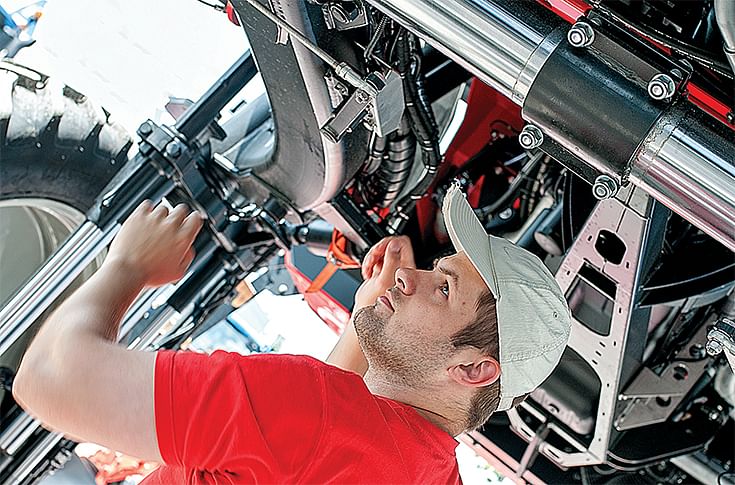
LTTS conducts reverse-engineering jobs. At its tear-down lab in Vadodara, it breaks down vehicles into components for analysis.
As mentioned earlier, last quarter we were awarded two large deals in the business segment. Our broad portfolio of offerings in leading-edge technologies keeps us ahead of the curve.
LTTS has already showcased its electric and autonomous technology capabilities. Where is the technology being deployed?
Our product engineering services and solutions focusing on key issues across technologies, verticals, clientele and markets are specifically designed for the next level of technology disruption. Our clientele includes many of the top 10 companies in the auto industry.
LTTS has developed a DC-to-DC converter — a customised, highly efficient and high-power density solution with reduced product size and cost. The high Efficiency Silicon Carbide (SiC) based Bi-Directional DC-to-DC converter is a breakthrough innovation for the emerging green and energy-efficient automobile proposition.
Developed in 2016, the DC-to-DC converter is a readily customisable solution/framework for electric and hybrid vehicles and renewables from the LTTS stable. LTTS is currently rolling out the solution globally for customers in the automotive hybrid, renewable energy and power electronics domain.
LTTS has also developed expertise in LiDAR technology, which is integral component of any autonomous vehicle. The light detection and ranging systems developed provide high-accuracy precision and object detection and recognition. Such technologies can really help to create a safe and automated driving experience in emerging markets such as India.
LTTS has recently bagged a multi-year project from a European OEM. Can you elaborate on this?
The project from Europe represents a major win for our EV technology leadership and goes to show the opportunities that are inherent in the continent. The project for the European OEM major involves electric Powertrain (e-Powertrain). In other words, we will be responsible for the functional qualification of the e-Powertrain Electronics Control Unit. LTTS will provide a real-time technology framework to evaluate the controller design of the e-Powertrain and will span from concept phase to product development till on-road testing of the vehicle.
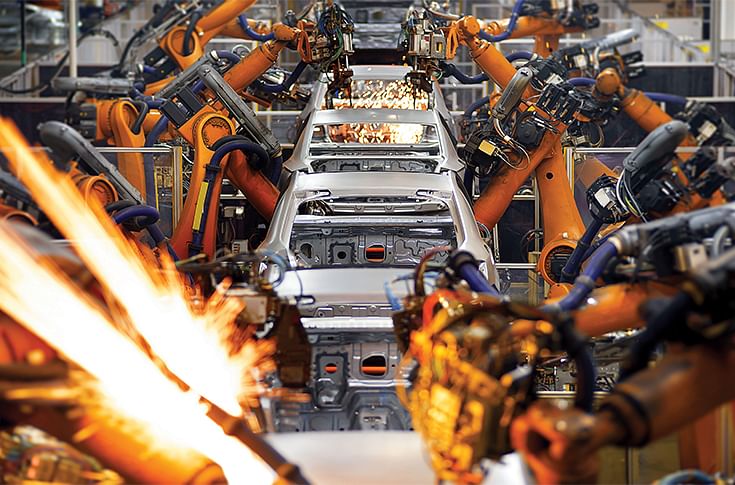
In addition to collaborating with OEMs and suppliers for their products, LTTS also enables digital transformation from engineering to factory floor to build smart factories.
Our simulation tools will analyse how the controllers respond in real time to virtual simulation using Hardware-in -Loop (HIL), Software-in-Loop (SIL) and Processor-in-Loop (PIL). LTTS will also deploy in-house solution accelerators to improve quality and save significant costs throughout the project development lifecycle.
In which areas is LTTS looking to invest in?
LTTS is investing in the future of transport. We envision that in the near future, over the next 10 years or so, the face of transportation would significantly change over existing patterns.
Consequently, we are gradually investing in autonomous cars, EVs, telematics, car security and will continue to do so. We are also working with global OEMs and Tier 1 companies to build next-generation vehicles, which emphasise user experience.
LTTS has developed near-shore centres for OEMs in the USA, Germany and Japan as part of its glocal model. LTTS engineers in these centres work on niche projects that contribute to the customer's growth roadmap.
LTTS has also invested in cloud-based technologies and software tools for sensing and connectivity, verification and validation, V2V and V2I technologies, and also battery management systems that help build such next-generation cars. In addition, our team has supported technologies like IoT (Internet of Things), AI, machine learning, robotics and automation, sensorisation, 3D printing to enable digital transformation from engineering to factory-floor to build future smart factories.
A few other areas where we will be investing include:
- Electric vehicle testing lab to test EV components such as inverter and converter.
- Physical testing lab to test mechanical components.
- Simulation and analysis lab for autonomous cars to test autonomous and EV systems.
You have been quite vocal that LTTS will not shy away from inorganic growth if the opportunity presents itself. Which segments are you looking at to make an investment or an acquisition?
One of our philosophies at LTTS has consistently been to acquire a company which can help and complement our technology and service offerings. We keep on evaluating small technology boutique companies, which can be successfully integrated into LTTS.
While we have already acquired two very promising companies (Esencia and Graphene Semiconductors) in the hi-tech space, we are also considering other important domains.
Semiconductors and chips are critical to all vehicles and are at the heart of the user/passenger experience, since a modern vehicle also serves as a personalised technology hub. The idea behind making technology-based acquisitions is not simply to achieve inorganic growth but instead offer technology value to customers.
LTTS has been winning many projects from international markets for electrification and autonomous solutions. Are you also working on the same in India?
Our offerings are region-agnostic as new technologies cannot be confined to one market. Having said that, the importance of India as a market is only poised to grow from here.
Our capabilities across a wide range of industries, and not just autonomous solutions, are as much for the domestic consumer as they are for the global client. Our discussions with customers are becoming more ubiquitous, leading to the development of next-generation products, services and operations.
LTTS is part of the L&T Group, India's leading infrastructure company. Are you leveraging the group synergies for new mobility solutions?
Absolutely. LTTS’ core objective and focus remains client centricity — offering the best solution for client requirements. To this end, leveraging synergies within the group is always an avenue under consideration. LTTS is also carrying forward the engineering heritage of the L&T Group by incubating new technologies which are changing the face of the industry. There have been occasions when we have worked with the Group and Group Companies to roll out digital offerings. We work on a co-optive approach with not only internal subsidiaries but also with the client to consistently innovate.
What do you think can be done to improve transportation/mobility globally to tackle pollution, traffic and other issues?
The government of India’s move to increase smart cities across the country will go a long way in tackling many of the issues that plague India today. One of the key objectives in building a smart city is sustainability and creating a healthy environment for the next generations. The L&T Group, including LTTS, is working on various smart city projects that have the potential to transform the country.
Throughout infrastructure planning, focus on low carbon growth and clean air is becoming the central theme. Innovation, change in current policies and promotion of sustainable transport has definitely made a significant contribution to improving air quality. Experts and agencies across the world are highlighting and setting up strong policy framework to monitor and regulate emissions to reduce air pollution, which I think as an important step towards urban planning and pollution control. Electrification of the transport sector is also a bold step which is being adopted globally as a solution for congested cities.
(This interview was first published in the December 15, 2019 Anniversary issue of Autocar Professional)
RELATED ARTICLES
INTERVIEW: "EV Demand is Rebounding both in India and Around the Globe" - JLR's Rajan Amba
Jaguar Land Rover India MD Rajan Amba discusses the India–UK FTA, the company’s manufacturing plans, the upcoming Panapa...
TVS Celebrates 20 Years of Apache, Eyes Premium and Global Push
Marking two decades of its flagship performance brand, TVS Motor unveiled special anniversary editions on Saturday while...
Q&A: Mahindra's Nalinikanth Gollagunta on Upcoming Festive Season, 'Bold' Design Choices
Automotive Division CEO Nalinikanth Gollagunta says mid-teens growth is achievable with Roxx ramp-up, BEVs, and a resil...






 19 Jan 2020
19 Jan 2020
 29422 Views
29422 Views





 Prerna Lidhoo
Prerna Lidhoo


 Darshan Nakhwa
Darshan Nakhwa


